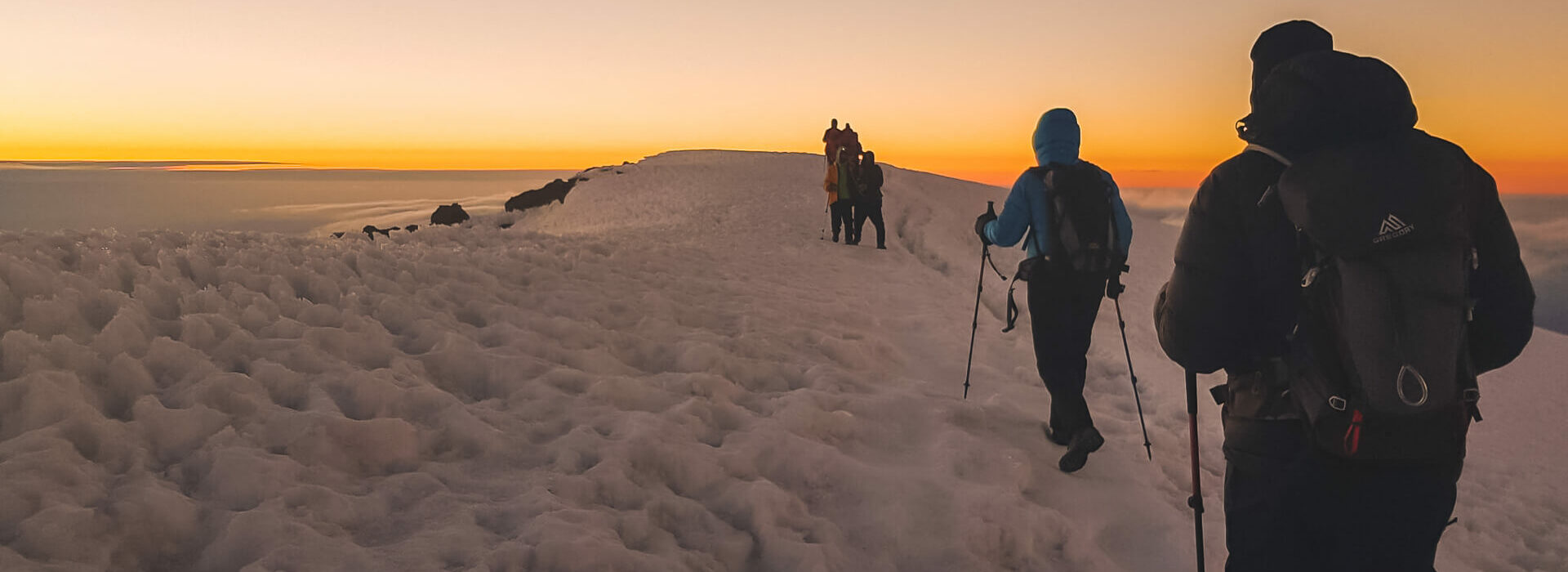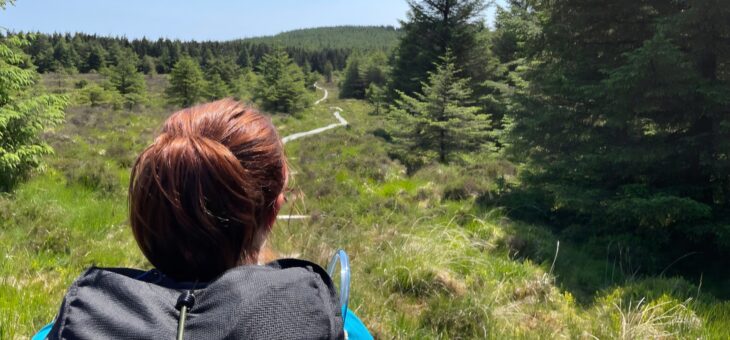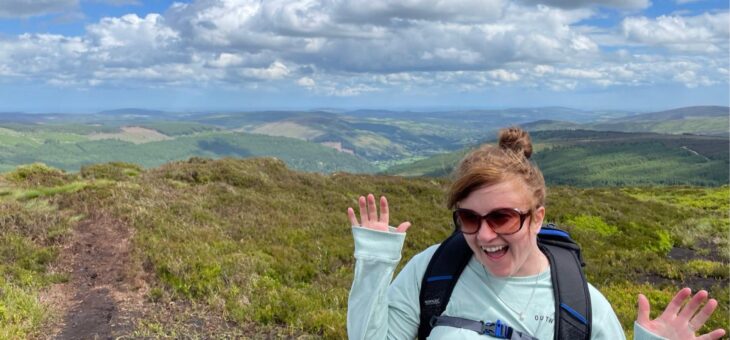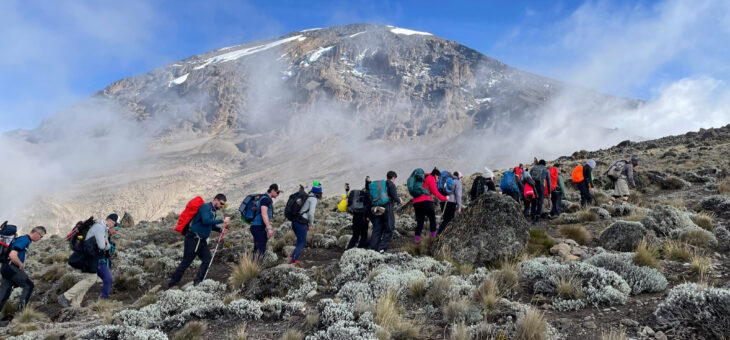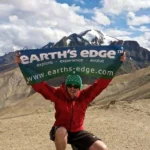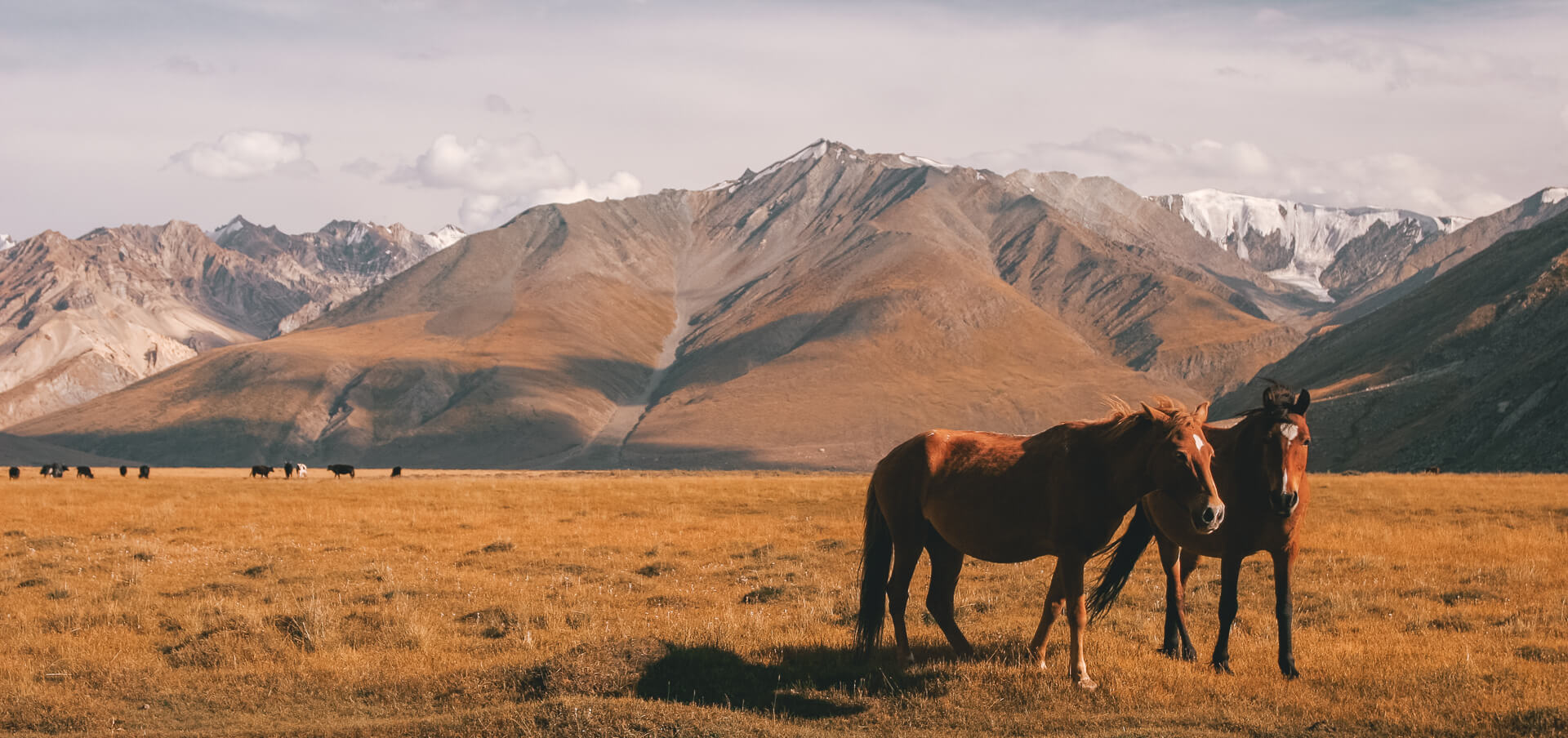Climbing Kilimanjaro is one of the world’s most iconic high altitude treks, and a bucket list adventure for many. But how much does it actually cost to climb Kilimanjaro?
Whether you’re planning a Kilimanjaro climb in 2025 and comparing operators or just starting your research, it’s important to understand what goes into the price and how to budget properly for your trip.
In this guide, we break down the real costs involved, especially for Irish trekkers, and explain what to look for to make sure you’re getting real value for money.
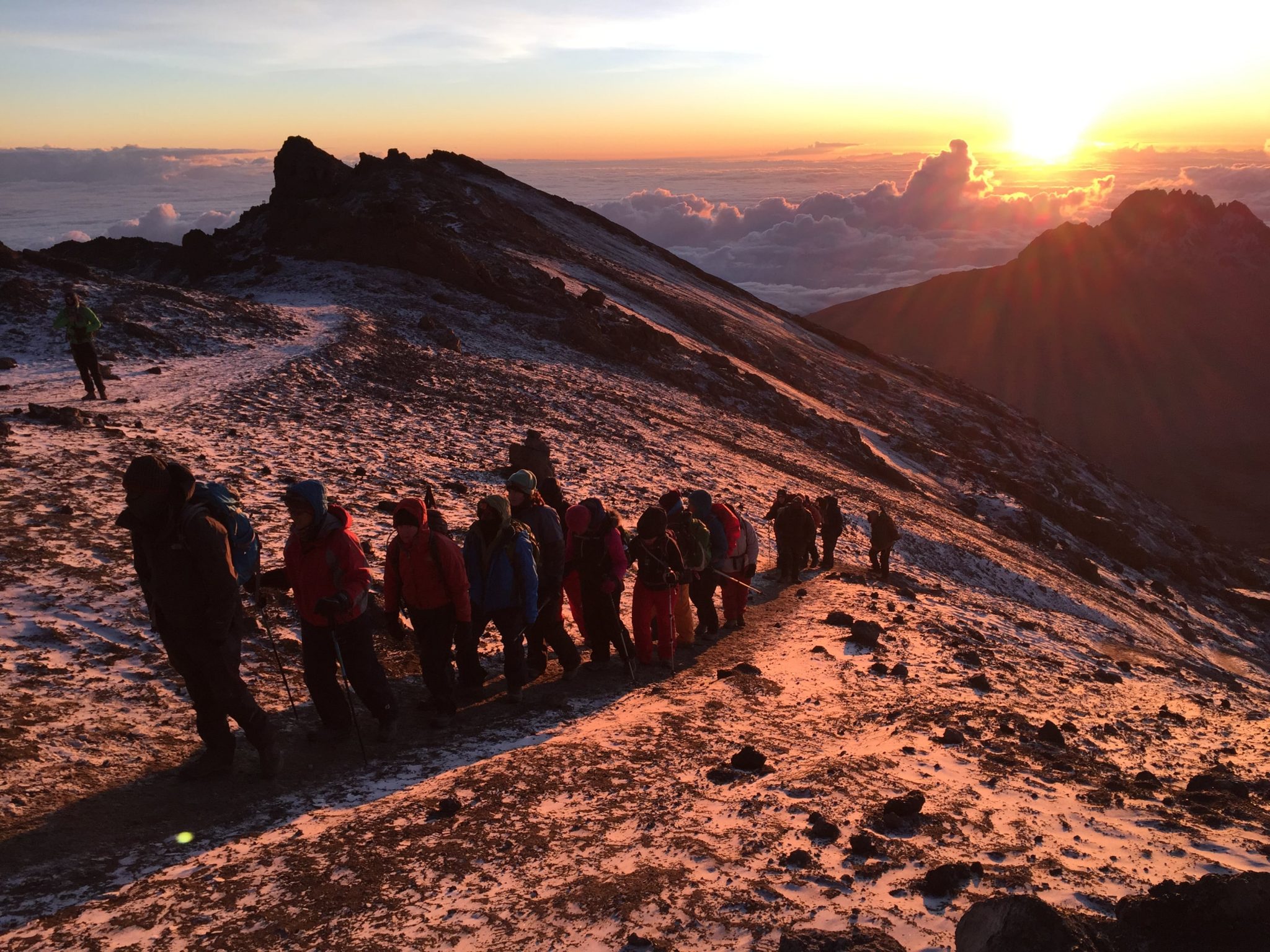
Total Cost to Climb Kilimanjaro from Ireland in 2025
Trying to pin down the exact cost of climbing Kilimanjaro from Ireland? The short answer is: it depends on the level of safety, support, and service you choose.
Below is a realistic estimate for a fully supported, high-quality Kilimanjaro trek from Ireland. It includes everything from park fees and permits to porters, guides and tips so there are no hidden surprises along the way.
It’s worth noting that you can’t climb Kilimanjaro independently. You must go with a licensed guide. That’s why choosing a reputable, experienced operator is key to a safe and successful summit.
Note: Cost estimates are current as of 2025 and subject to change.
| Cost Element | Estimated 2025 Prices (EUR) |
|---|---|
| Trek Package (with Earth’s Edge) *Land only – Arusha to Arusha | €4,399 |
| Flights (Dublin to Kilimanjaro return) *Can vary hugely by season | €1,000 – €2,000 |
| Airport Transfers | €100 – €200 |
| Tourist Visa for Tanzania | €50 |
| Vaccinations & Medication | €100 – 200 |
| Insurance (with high-altitude cover) | €200 – 300 |
| Tips (porters/guides) | €200 |
| Gear & Clothing (if renting/buying) | €400 – €1,500+ |
| Safari add-on (optional) | €250+ |
| Total Estimate | €6,350 – €9,000+ |
Average Cost of a Kilimanjaro Climb
The average cost to climb Kilimanjaro for the trek alone typically ranges from €2,000 to €6,000 per person. Prices vary depending on factors like the route chosen, trek duration, group size, and level of support provided.
When it comes to Kilimanjaro, cheaper isn’t always better. While budget operators may offer lower prices, it’s important to understand why and carefully review what’s included. Your safety, success, and overall experience depend heavily on the quality of your support team, equipment, and planning.
At Earth’s Edge, our 7-day Machame Route expedition costs €4,399 land only.
Why Kilimanjaro Costs Vary So Much
The cost of climbing Kilimanjaro can vary significantly depending on the season, the route and duration, level of support provided and so on.
In our experience, here’s why prices vary:
1. Route & Number of Days
There are several routes up Kilimanjaro, each offering a different balance of challenge, scenery, and acclimatisation:
- Umbwe Route (5 days) – The shortest and steepest route, with a poor acclimatisation profile. Rarely used.
- Marangu Route (5-6 days) – The only route with hut accommodation (dorm-style). Cheaper but more crowded, with a lower summit success rate due to fast ascent. Follows the same trail up and down.
- Rongai Route (6 days) – Approaches from the remote northern side. Less crowded, but the more direct ascent allows for weaker acclimatisation, which may lower summit success rates.
- Machame Route (7 days) – Very scenic with an excellent acclimatisation profile (climb-high, sleep-low), contributing to higher summit success rates.
- Lemosho Route (8 days) – Starts on the quieter western side with a longer, more gradual ascent. More expensive due to extended itinerary and additional logistics.
Longer routes tend to be more expensive but they offer better acclimatisation and a significantly higher chance of a successful summit.
At Earth’s Edge, we follow the Machame Route because it offers the ideal balance of scenery, acclimatisation, and summit success. Its “climb high, sleep low” profile improves your chances of reaching the summit safely, while the varied landscapes like the Shira Plateau and Barranco Wall make for an unforgettable trekking experience.
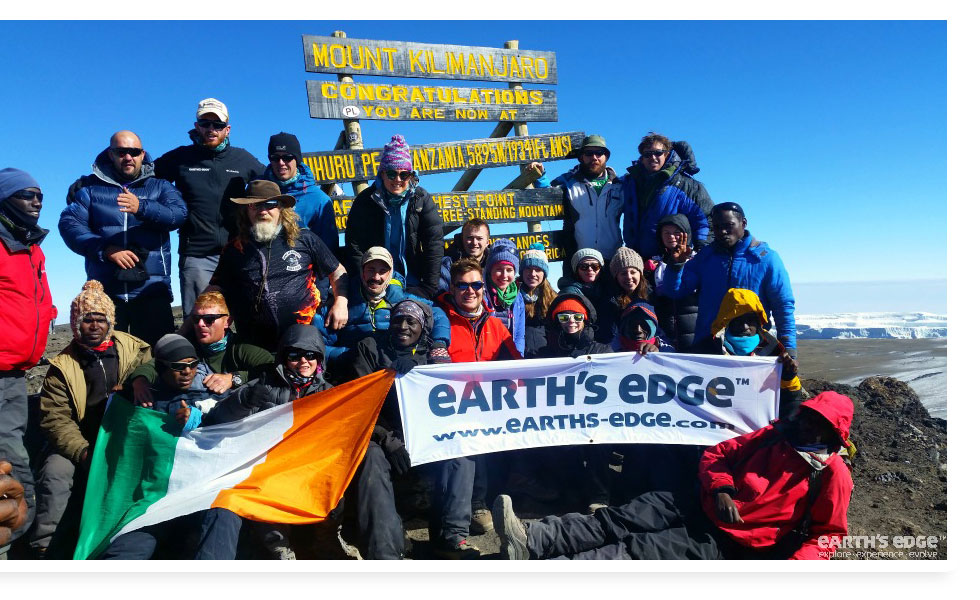
2. Operator Quality
Unfortunately, not all trekking operators are created equal. Costs vary widely depending on the quality and inclusions offered by the operator. Since there’s no formal regulation on Kilimanjaro operator standards, it’s important to research carefully.
When choosing an operator, consider what’s included and where corners may be cut, as this can affect your overall experience and likelihood of a successful summit. Key factors to consider include:
- Staff wages and welfare: Are porters and guides paid fairly? Are they provided with sufficient food or gear for a safe climb?
- Safety and acclimatisation: Is any medical support included? Are clear evacuation procedures in place? Is the itinerary designed for proper acclimatisation?
- Food quality: Is all food included and sufficient in quantity? Is it fresh and nutritious? Is drinking water treated and readily available?
- Equipment: Are tents high-quality and suited to mountain conditions? Are sleeping mats provided? Is there a mess tent to relax in after a tough day on the trail?
- Group size and support: What is the maximum group size? Does the guide-to-participant ratio offer enough individual support?
At Earth’s Edge, we prioritise safety, fair wages, and expert support. We are a proud partner of KPAP (Kilimanjaro Porters Assistance Project) and follow all guidelines to ensure our crew are fairly treated, paid, and properly equipped.
That’s also why we run our Porter Clothing Drive – to support our amazing team of Porters in Tanzania by providing essential clothing and gear to keep them safe and comfortable on the mountain.
3. Inclusions vs. Hidden Costs
When comparing Kilimanjaro trek prices, it’s essential to look beyond the headline cost. Make sure the quotes you’re comparing include the same services. Be cautious of packages that seem too good to be true. Items like meals, tents, permits, or even drinking water can sometimes be excluded from budget options. If the price seems too good to be true, carefully consider why.
Hidden or surprise costs quickly add up, so ensure the package includes:
- Kilimanjaro National Park / Permit Fees (approx. US$1,000 per person for 7 day Machame Route), which include:
- Conservation Fees: $70 x 7 days = $490
- Campsite Fees: $50 x 6 nights = $300
- Rescue Fee: $20
- Taxes (VAT 18%): $145
- Guide and Porter Entrance Fee: $2 per staff member
- Porters for luggage and group gear transport
- Fair pay for all staff members including KPAP membership
- Meals and drinking water on and off the trek
- Accommodation in Arusha pre- and post- trek
- Emergency/medical support
What’s Included in Our Kilimanjaro Trek Package (And What’s Not)
Our Kilimanjaro expedition is designed to maximise safety, support and summit success. Our prices are fully transparent, with no hidden costs.
Here’s what’s included as standard in the Earth’s Edge Kilimanjaro trek package:
Included:
Before You Go:
- Pre-departure training weekend in Ireland with gear checks and prep
- Comprehensive pre-departure support from our Irish office team
Arrival & Accommodations:
- Three nights’ accommodation in Arusha (1 pre- and 2 post-trek)
During the Trek:
- Seven-day fully supported trek via the scenic Machame route
- Summit night at Kosovo camp for increased summit success rates
- Kilimanjaro National Park permits and rescue fees as outlined above
- Full support team: experienced expedition leader, guides, cooks, and porters
- Expedition doctor, with a fully stocked med kit and emergency oxygen supply
- All meals on the mountain: nutritious, freshly prepared and designed for high-altitude nutrition
- Group equipment including high-quality Mountain Hardwear 4-season tents, large mess tent and private portable toilet tents for our group
Not included:
- International flights
- Airport transfers (unless arriving at specified times)
- Tanzanian tourist visa ($50)
- Vaccinations and medication
- Travel insurance
- Tips for local staff
- Optional safari add-on
Additional Costs to Factor In
1. Flights from Ireland to Kilimanjaro
Flights from Dublin to Kilimanjaro (JRO) typically cost €1,000 – €2,000 return, depending on the season and how far in advance you book. Most routes involve one or two connections. Common options include:
- KLM via Amsterdam
- Qatar Airways via Doha
- Turkish Airlines via Istanbul
We’re happy to provide tailored flight advice based on your confirmed expedition dates.
2. Travel Insurance
You’ll need comprehensive travel insurance that covers trekking up to 6,000m and medical evacuation. Expect to pay around €200 – €300 depending on your provider.
We’ve partnered with True Traveller, a trusted provider offering tailored high-altitude cover through their Extreme Pack. Booking through our link supports Earth’s Edge at no extra cost to you.
3. Vaccinations & Medication
Vaccination and medication requirements will vary depending on your personal medical history and travel plans. Commonly recommendations vaccinations for travel to Tanzania include:
- Hepatitis A and B
- Tetanus / Diphtheria / Polio
- Typhoid
- Yellow Fever (only required if transiting through certain countries e.g. Kenya)
You’ll likely also need malaria prophylaxis. Malarone is the most commonly recommended option, though it can be surprisingly expensive.
Some trekkers choose to bring Diamox (acetazolamide) to help prevent altitude sickness. While we do recommend it for most people, it’s not essential for everyone. Speak to your GP or travel clinic to see if it’s right for you.
If you take any regular personal medication, be sure to bring enough for the full duration of your trip, with some extra in case of delays. Certain medications may not be easily available in Tanzania.
We strongly recommend speaking to your GP or a travel health clinic at least 10-12 weeks before departure to discuss your needs and get accurate, up-to-date pricing. As we require all participants to submit a completed Doctor’s Consent Form three months before departure, it’s a good idea to coordinate both at the same time.
4. Tips for Guides and Porters
Tipping is customary on Kilimanjaro and an important way to show appreciation for the hard work of guides, cooks and porters.
We recommend budgeting €200 total per person.
We provide clear tipping guidance, so you’ll know exactly what’s appropriate and how the tips are divided among the team. We’re confident you’ll agree with our recommendation once you experience firsthand the dedication and support of our incredible team throughout the trek.
5. Gear Costs: What to Bring and What to Rent
Kilimanjaro is a challenging high-altitude trek, and having the right gear is essential. If you already hike regularly, you may have much of what you need. If not, expect to spend €400–€800 on essentials like:
- Sleeping bag
- Down jacket
- Waterproofs
- Trekking poles and boots
Earth’s Edge clients receive a detailed packing list and expert advice well in advance. Some gear can also be rented in Arusha, but we generally recommend bringing trusted, high-quality gear from home where possible.
💡 We guide you through exactly what to pack for Kilimanjaro and how to prepare in our pre-departure support.
6. Optional or Unexpected Extra Costs
There are a few extra costs to be aware of:
- Tanzania Tourist Visa: $50 USD. This must be applied and paid for in advance. We’ll send you a handy helpsheet to make it simple.
- Airport Transfers: We can organise one-way (€100) or return airport transfers for you (€200).
- Snacks & drinks: We suggest bringing your preferred energy snacks or electrolyte tablets for the mountain, but bring some spending money for after the trek too
- SIM cards or local data: Optional, for those who want to stay connected
- Post-trek safari: We offer an optional one day safari add-on to explore Tarangire National Park, which costs €250.
- We also offer a 3-day safari add-on with accommodation, transport and expert guides. Please contact us for a quote.
Is Kilimanjaro Worth the Cost?
Absolutely! Climbing Kilimanjaro is more than just ticking a bucket-list item, it’s a chance to challenge yourself, connect with nature, and experience Tanzanian culture.
You’ll come home with life-long memories, new friends, and the satisfaction of knowing your adventure had a positive impact on the local community.
Why Choose Earth’s Edge?
- A pre-departure training weekend in Ireland
- Small groups capped at 16 for a personalised experience with better support
- Dedicated, fully qualified doctor on every high-altitude trek
- Fair treatment and a living wage for all local staff
- Expert planning and 24/7 support from our Irish office team
- 96% summit success rate in 2024, thanks to expert planning and acclimatisation focus
FAQ: Kilimanjaro Cost Questions
How much money should I bring with me?
Plan for around €450 in cash for tips, snacks, and souvenirs.
Is tipping mandatory?
Tipping is customary on Kilimanjaro and supports the incredible local crew. We provide a guide to help you know what’s appropriate.
Can I pay in instalments?
Yes! You can secure your place with a €399 deposit, and then pay in flexible instalments through your online account.
Are international flights included in the package?
No, but we’ll give you flight tailored advice on the best routes and timings based on your expedition dates.
Is a post-climb safari included?
No, but you can add one after your Kilimanjaro trek if you wish. We offer a 1-day or 3-day safari as an optional add-on.
What happens if I get sick on the mountain?
You’ll be in expert hands. Every Earth’s Edge expedition includes a fully qualified expedition doctor who is equipped to deal with altitude-related illness and other medical issues.
Ready to Start Your Kilimanjaro Journey?
Climbing Kilimanjaro is a serious adventure, but it’s also one of the most rewarding achievements you can experience. Understanding the costs involved helps you plan with confidence and choose an operator that aligns with your values.
If you want a high-quality, small-group trek that prioritises safety, success, and responsible travel, with expert guides and a dedicated expedition doctor, we’d love to help you reach the summit!
👉 Explore our Kilimanjaro expedition
📅 2025 & 2026 dates now available
✅ Training advice, expert guides & fully supported expeditions with a doctor!
